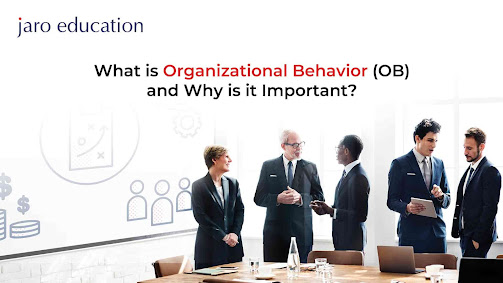Impact of Human Behavior to an Organization
Introduction
What is Human Behavior?
Human behavior in organizations is a multifaceted subject that encompasses
the study of how individuals and groups act within a workplace setting.
Understanding human behavior is essential for creating effective management
strategies, fostering a positive work environment, and enhancing organizational
performance. This essay explores the key aspects of human behavior in
organizations, including motivation, communication, leadership, and group
dynamics. By examining these components, we can gain insights into the factors
that influence employee behavior and how organizations can leverage this knowledge
to achieve their goals.
Human behavior significantly impacts an organization in various ways. It
influences the organizational culture, employee productivity, communication
patterns, and overall workplace atmosphere.
What Are the 4 Elements of Organizational Behavior?
The four elements of organizational
behavior are,
1) People
2) Structure
3) Technology
4) External environment
By understanding how these elements
interact with one another, improvements can be made. While some factors are
more easily controlled by the organization such as its structure or people
hired it still must be able to respond to external factors and changes in the
economic environment.
Why Is It Important to Study Organizational Behavior?
Studying organizational behavior
allows an organization to understand how its employees behave and interact with
each other and the organization itself. Using the results, organizations can
implement changes that enhance performance and efficiency, as well as improve
employee satisfaction.
Organizational Behavior and HR
Organizational behavior is an especially important aspect to human resources. By better understanding how and why individuals perform in a certain way, organizations can better recruit, retain, and deploy workers to achieve its mission. The specific aspects of organizational behavior relating to HR are listed below
Recruitment
Organizational behavior research is used to identify the skills, abilities, and traits that are essential for a job. This information is used to develop job descriptions, selection criteria, and assessment tools to help HR managers identify the best candidates for a position.
Training
Organizational behavior can be used to design and deliver training and development programs that enhance employees' skills. These programs can focus on topics such as communication, leadership, teamwork, and diversity and inclusion. In addition, organizational behavior can be used to better understand how each individual may uniquely approach a training, allowing for more customized approaches based on different styles.
Performance Management
Organizational behavior is used to develop performance management systems that align employee goals with organizational objectives. These systems often include performance metrics, feedback mechanisms, and performance appraisal processes. By leveraging organizational behavior, a company can better understand how its personnel will work towards common goals and what can be achieved.
Employee Engagement
Organizational
behavior is used to develop strategies to improve employee engagement and motivation. These strategies can
include recognition and rewards
programs, employee involvement initiatives, and career development
opportunities. Due to the financial incentives of earning a paycheck, organizational behavior strives to go beyond
incentivizing individuals with a paycheck and understanding ways to enhance the
workplace with other interests.
Conclusion
In conclusion, human behavior has a
profound impact on organizations, influencing everything from culture and
productivity to communication and workplace atmosphere. Understanding and
managing human behavior is essential for creating a positive and productive
work environment. By fostering positive behaviors, organizations can enhance
employee engagement, improve performance, and achieve long-term success. As the
business landscape continues to evolve, the importance of addressing human
behavior in the workplace cannot be overstated.
References
Kopp,
C.M. (no date) what is organizational behavior (OB) and why it matters, Investopedia.
Available at: https://www.investopedia.com/terms/o/organizational-behavior.asp Accessed:
03 November 2024).



.webp)
"Insightful analysis on the impact of human behavior in organizations! Your points illustrate how understanding behavior can drive positive culture, improve collaboration, and boost overall productivity. Great read!"
ReplyDeleteThis blog does a fantastic job of highlighting the crucial role human behavior plays in shaping organizational success. By exploring the various aspects of organizational behavior—such as motivation, communication, and employee engagement—it provides valuable insights for anyone interested in building a positive and productive workplace. Your focus on HR applications like recruitment, training, and performance management underscores how understanding behavior can be transformative for both individuals and organizations. Keep up the great work?
ReplyDeleteThe blog post make reader understand & as well promote healthy behaviors within the workplace and it clearly explains not only fosters a positive culture but also drives innovation and success via the human behavior of an organization. Good read!!
ReplyDeleteThis blog provides a thorough exploration of how human behavior influences organizational success. Understanding elements like motivation, communication, and group dynamics can help enhance employee engagement, productivity, and overall performance.
ReplyDelete